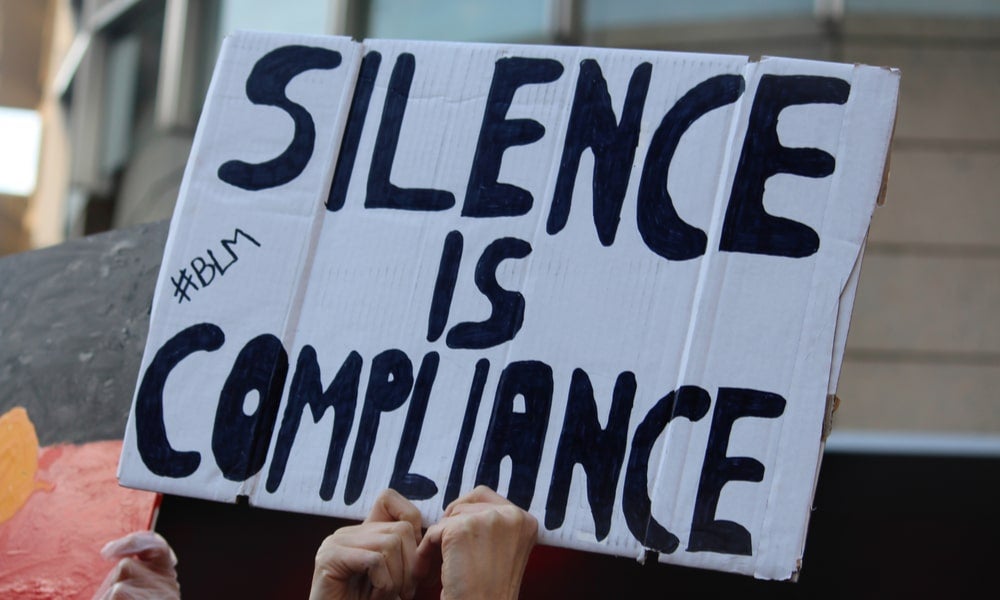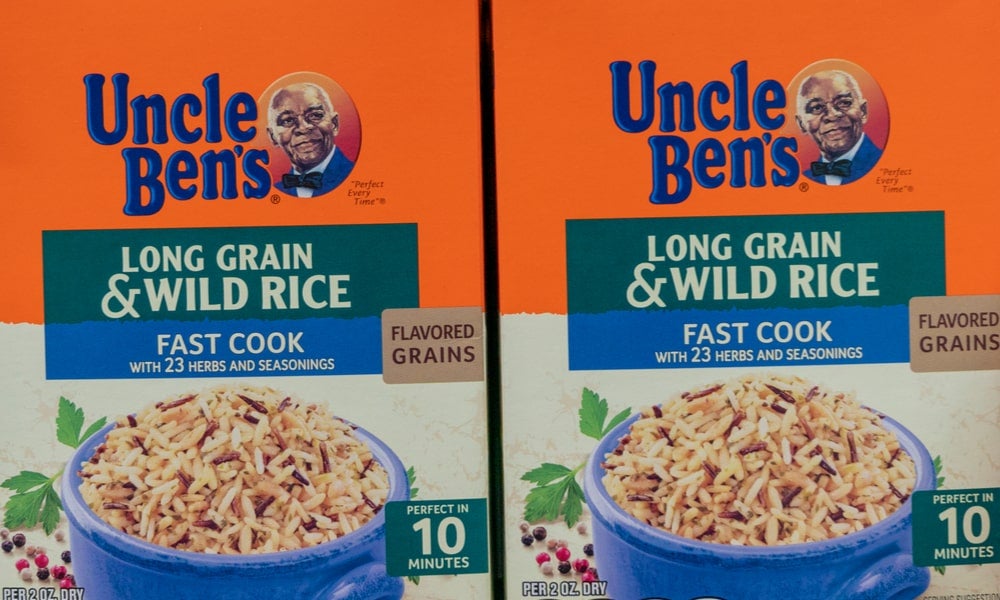3 keys to 'authentic brand activism' at THE ICONIC
Brands backing the Black Lives Matter movement like THE ICONIC openly show support and solidarity on social media, but doing so can result in vastly different business outcomes for other brands – and its important to ask why, says a UNSW Business school expert
With the continued rise in conscious consumerism, more businesses are having to evolve to address consumer demands. Many consumers today choose to only support brands that are making a difference – products that not only fulfil a specific need or want, but that represent ideas and align with their values. This means that brands no longer fill a purely commercial space; consumers also expect them to participate in the social dialogue and expect them to be socially responsible.
Several Australian brands, such as THE ICONIC, recently demonstrated support for the Black Lives Matter movement with social media posts that attracted thousands of likes and positive comments. But consumers today are demanding more than just words of support; they want to see these values reflected in concrete action. This trend is shaping the future success of Australian e-commerce businesses, like THE ICONIC, but is also leading to brands (mainly in the US) to rebrand and change their logos.
Don't sit on the fence
With access to more information, connection and choice than ever before, the rise of conscious consumerism continues to grow, says Jaana Quaintance-James, Sustainability Lead and Global Fashion Group Chief Sustainability Officer at THE ICONIC.
But being impartial or ‘sitting on the fence’ when it comes to important social, moral or environmental issues has not only ethical implications for brands but ultimately can be commercially damaging, says Ms Quaintance-James.
She says THE ICONIC is aware of its innate responsibility to the wider world and community in which it operates. “This includes being accountable to use our influence as a force for positive action and change across relevant social issues that affect our people, whether that’s internally with our team, or externally amongst our customers and partners,” she says.
As a show of solidarity for the Black Lives Matter movement, brands around the world posted black squares on social media. But some have since questioned the authenticity of such messaging and what exactly it achieves. For some brands, attempts to show solidarity have even backfired in a major way.

For THE ICONIC, the decision to post support on social media was an easy one. “As a diverse organisation made up of almost 1,000 people from 43 nationalities, we are a collective group of people who care about the wider world and community within which we all operate. Both as individuals and as a company committed to championing inclusion, we are not okay with racism and we felt a strong need to use our voice and our platform to make this known,” explains Ms Quaintance-James.
“The horrific scenes coming out of the US forced us to reflect, and remind us how little our country recognises its own injustices and deaths in custody of our Aboriginal and Torres Strait Island people. Collectively, as a society, we are all not yet doing enough to dismantle the ‘casual’ and systemic racism that injects itself into our culture,” she continues.
“This has to change, and to us, staying silent on an issue like this signalled complicity. We believe that both as an organisation, and as individuals, we have a responsibility to do better – to be better – and be a part of the change," she adds.
Walking the line
But she says THE ICONIC doesn’t pretend to have the authority or understanding to have all the answers. “We are currently focused on learning more about Australia’s own racial injustice, and how we can work with indigenous leaders to help educate ourselves and our customers on this deep-rooted topic. As part of this and our existing Sustainability Strategy, we recently submitted our Reconciliation Action Plan to Reconciliation Australia for review and endorsement,” says Ms Quaintance-James.
Therefore, showcasing support on social media is one thing, but genuine authenticity is achieved by action and ‘walking the walk’ to reinforce words with meaningful action, confirms Ms Quaintance-James. She also says THE ICONIC encourages employees to bring their values to work every day, which in turn ensures an authentic and encompassing emphasis on people doing their best for others and the planet.
“For example, when it comes to a topic like diversity and inclusion, this is not something that we support as a trend or a one-off. Rather, our commitment is deeply rooted across all facets of our business, whether that be the models that appear across our e-commerce, our annual Summer Show which has been praised for its championing of diversity and body positivity, our diverse and inclusive internal team, to the work we are formalising now on Reconciliation,” explains Ms Quaintance-James.

“To help customer education, we are further using our platform to share valuable learning resources, including providing indigenous activists with a takeover of our Instagram’ Frank Fridays’ series, where customers can ask questions of interest and take actionable learning on how to help support positive change in this space,” adds Ms Quaintance-James.
Do diversity and inclusion fit in with brand identity and recognition?
"At THE ICONIC, who we are is built on an overarching purpose of Liberation. Everything we do ladders back to this. For us, showcasing support is one thing, but true authenticity is achieved by action and ‘walking the walk’," says Ms Quaintance-James. So staying true to brand identity is key for THE ICONIC, and this likewise reinforces authenticity.
For other brands, advocacy may be more challenging. For example, Quaker Oats announced it would retire Aunt Jemima from its packaging. At the same time, Uncle Ben’s, Mrs Butterworth’s and Cream of Wheat also promised to review their brand logos and product packaging.
Specifically, rice company Uncle Ben’s has committed to changing its logo, removing elements that hark back to southern US racial stereotypes as far as 130 years ago. “As we listen to the voices of consumers, especially in the Black community and the voices of our Associates worldwide, we recognise that now is the right time to evolve the Uncle Ben’s brand, including its visual brand identity which we will do,” an Uncle Ben’s spokesperson says.
But the brand also says it intends to increase diversity in its talent and leadership pipeline and invest in and partnering with organisations that fight for racial equity. “We stand in solidarity with the Black community, our associates and our partners in the fight for social justice. We know to make the systemic change needed, it’s going to take a collective effort from all of us – individuals, communities and organisations of all sizes around the world. We will hold ourselves accountable to achieve meaningful change,” the spokesperson says.
But according to Associate Professor Nitika Garg from the School of Marketing at UNSW Business School, the idea of brands now getting into controversial causes, social causes and political issues, is relatively new, so we don’t know what the full impact of rebranding for a social cause – from a commercial sense – could be.
“We don’t know how it impacts these brands, we’ve seen some examples, but from a research perspective, we just don’t know,” says A/Prof Garg.

Regardless of the consequences, however, consumers today expect brands to take a stand, especially big organisations, and particularly for something as charged as the Black Lives Matter movement, according to A/Prof Garg. But they want more than just words – they want changes in hiring practices, in recruitment, in promotion practices, or scholarships for underprivileged groups.
"People can tell when the brand is actually trying to make a difference, and when they are just trying to engage in lip service or slacktivism," she says. “Especially because this isn't a new issue. If it was a new issue, I think consumers would be willing to cut the brand some slack and let them figure out where they stand and how they will approach it... but now they want the brands to speak out, and I think there has been a backlash against brands which haven’t taken a stand”, says A/Prof Garg.
But there’s no doubt that it will be a steeper climb for brands like Uncle Ben’s, and other brands which are rethinking their logo and packaging completely. “It’s a more dangerous proposition. It’s a very welcome step, of course, but the risk is that you are compromising the actual visibility of the brand,” says A/Prof Garg.
“It’s like any rebranding – if you don’t put the resources behind making the market aware of the rebranding, then it can backfire, and people will not recognise you.”
“It’s a good thing they’re doing – it clearly shows commitment to the cause and awareness that it is not okay to perpetuate those stereotypes, but it will be interesting to see how it impacts their bottom line in the long run," adds A/Prof Garg.
For more information on consumer behaviour research, contact Associate Professor Nitika Garg from the School of Marketing at UNSW Business School.
